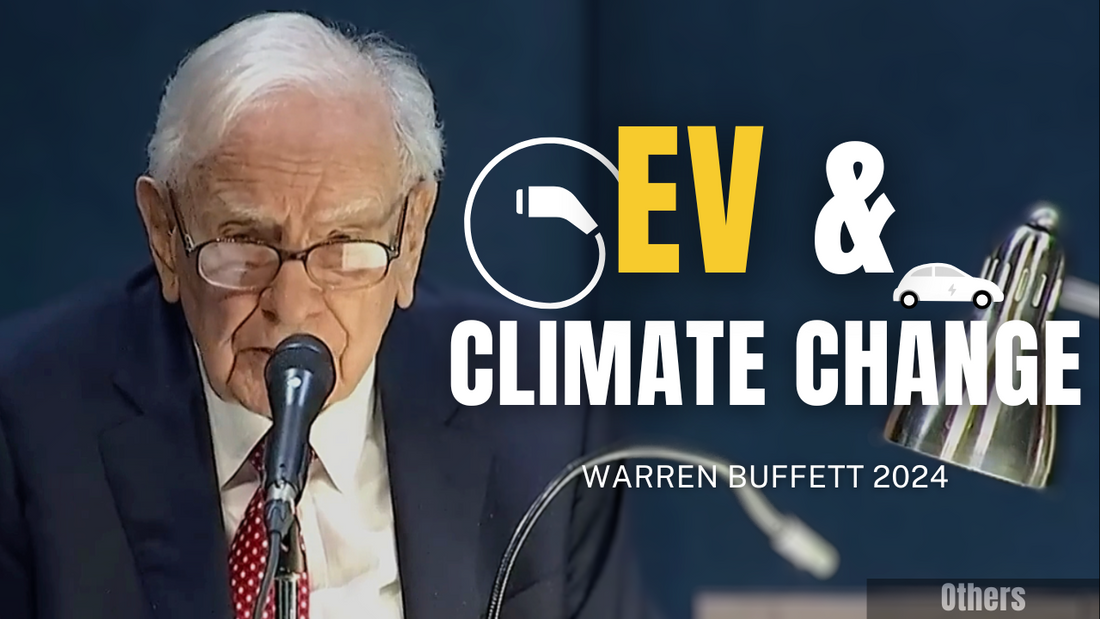
Warren Buffett on Climate Change and EVs: A Hard Problem to Solve | Berkshire 2024
[Transcript]
AUDIENCE MEMBER: Looking at global trends, it increasingly does seem that zero-emission vehicles may have finally reached the cusp of massive adoption. Do you see any opportunities in this space, either in specific vehicle manufacturers or in related technologies? As an addendum, will note that Berkshire has very relevant interests in energy, Pilot Flying J, and BYD. Thank you.
WARREN BUFFETT: Yeah, well, we will. I hope you're right. And massive adoption is—has been sort of a moving target so far, but I hope we get there. But Berkshire would not be—I don't think that we bring any special talent to that field. You've got to be a vehicle manufacturer, and—I would certainly not know how to pick the winners in an industry like that. But I'll be delighted if there are some winners.
But don't count on us foreseeing who the winners will be, and don't count on us for predicting when something will happen. It obviously has been a moving target so far, and it is an incredible problem that society faces, and it may be that the governments are not very good at solving it for a while.
All of climate change has a terrible problem just in the fact that the United States particularly has been the one that's caused the problem the most. And then we're asking poorer societies to say, well, you better change the way you live because we live the way we did. And you know that really hasn't been settled yet.
It's a fascinating problem to me, but I don't have anything to add to how you really slice through the world. When I was born in 1930, there were just essentially 2 billion people in the world population statistic. Now there's 8 billion.
Now, if you'd asked anybody in 1930, if you take the 50 smartest people in the world and you said, what's the optimum population for the world, when you're 93 years old, they would have not said 8 billion. There wouldn't be anybody close to it. But we did it.
Now, we're reaping some of the consequences of having done that, and we got the benefits in the United States. I'm exaggerating here to some extent, but the developed world basically got it. And then we're telling a whole bunch of other people that we want them to change the way they live because of the way we lived.
So we will see what happens with it. But that's a problem that is very, very, very hard to solve among a couple hundred countries. And I really don't have anything to contribute on it.
Source: https://buffett.cnbc.com/2024-berkshire-hathaway-annual-meeting/
[YAPSS Takeaway]
